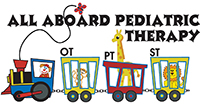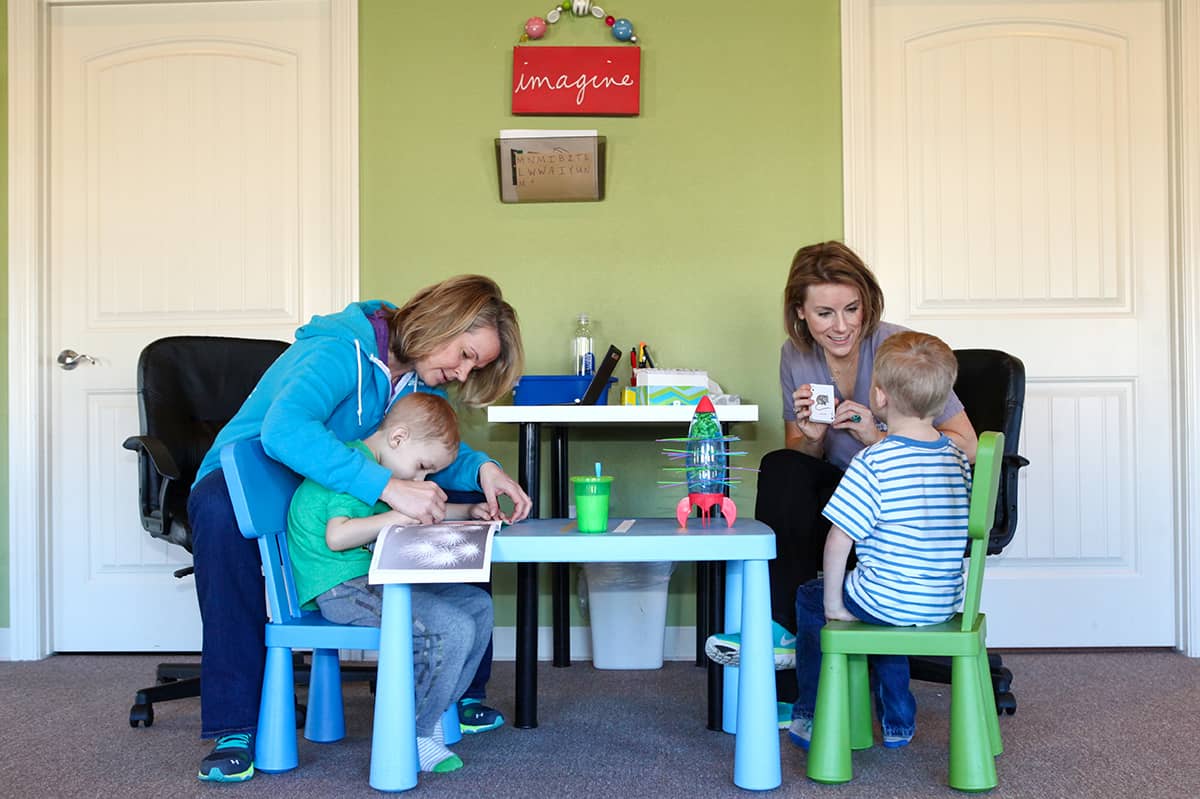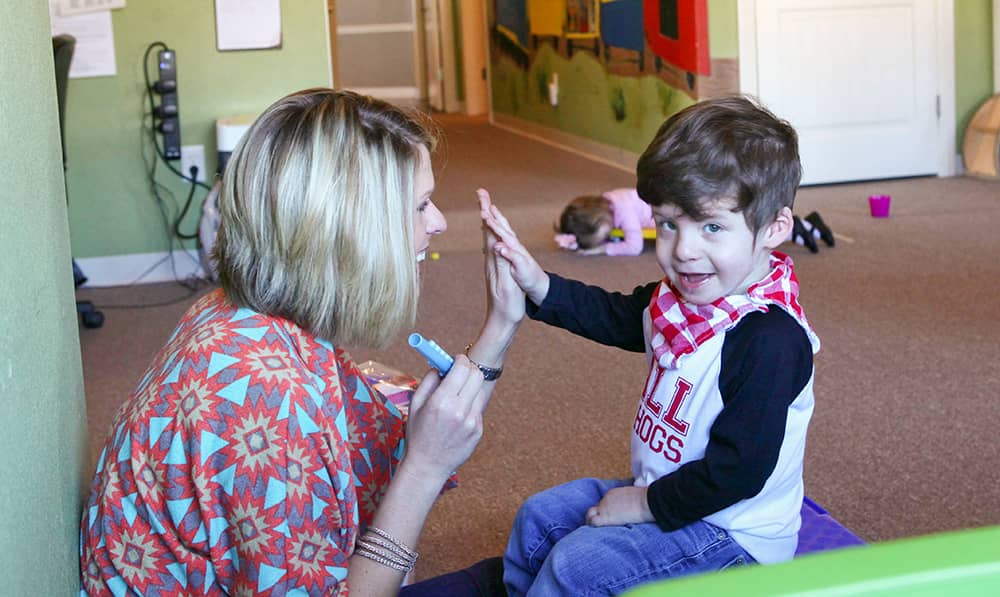Occupational Therapy
As Occupational Therapists specializing in Pediatrics, we are professionals who assist in the assessment and treatment of sensorimotor skills, visual
motor and visual perceptual skills, feeding, social interaction, attention, fine motor skills, handwriting, upper extremity abilities, learning difficulties, and other functional skills of children.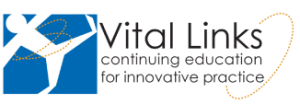
We help kids develop the skills to perform the tasks of their everyday lives using creative methods in a kid friendly setting. Because a child’s “occupation” is to function independently in their home, play, and school environments, we provide therapy in a fun atmosphere to encourage their success.
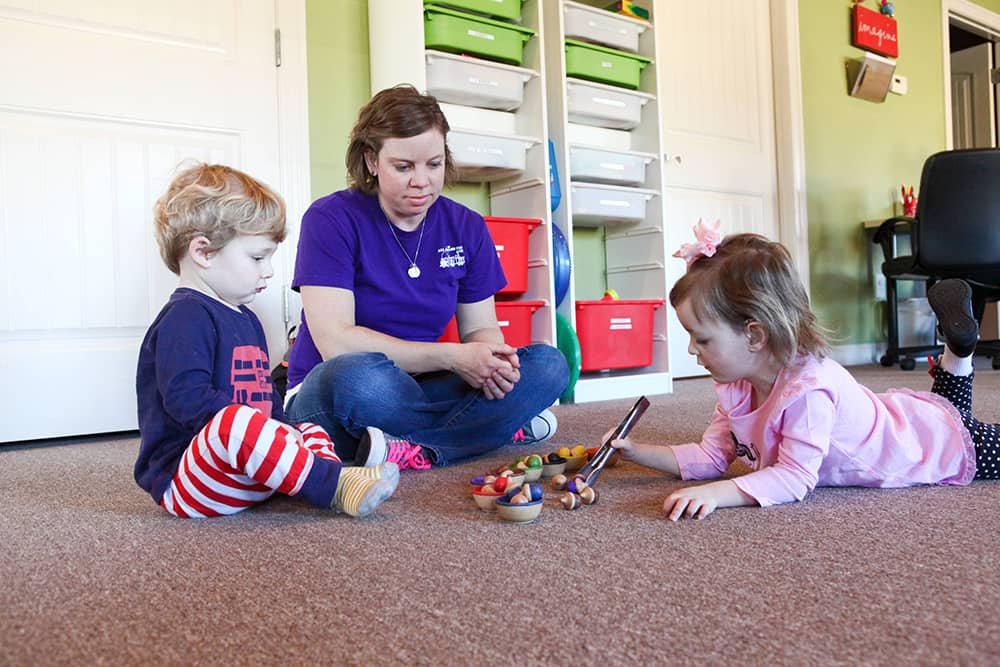
Occupational Therapists:
- Assess and treat sensory processing disorders.
- Improve upper extremity muscle strength, endurance, range of motion, coordination, fine motor abilities and function.
- Help maximize independence with self care skills.
- Recommend strategies for managing decreased or emerging function and movement which may include assistive equipment.
- Work on social and peer interaction skills.
- Provide education to caregivers.
- Consult with other professionals regarding the role of occupational therapy and how it can improve the child’s daily life.
- Collaborate with caregivers and child to create effective carry-over from the occupational therapy clinic to home.
Physical Therapy
As Physical Therapists specializing in Pediatrics, we help children maximize their physical abilities and minimize the physical limitations that accompany some developmental issues. Our goal is to assist children in developing independence and safety while reaching their highest level of potential in the home, community, classroom and playground activities.
We are concerned with children’s ability to take part in important movement activities such as crawling and walking, running, playing games, participating in sports, and in other important physical interactions with the world around them. In addition, for children who rely on mobility aids such as wheelchairs, orthotics and other supports, our therapists work to ensure successful and safe navigation in their  environments.
environments.
Physical therapists may incorporate many intervention approaches, including stretching, massage, therapeutic exercise, and encouraging
appropriate motor development to enhance the child’s capabilities and prevent additional impairments. We also assess and modify environmental obstacles that might impede optimal performance.
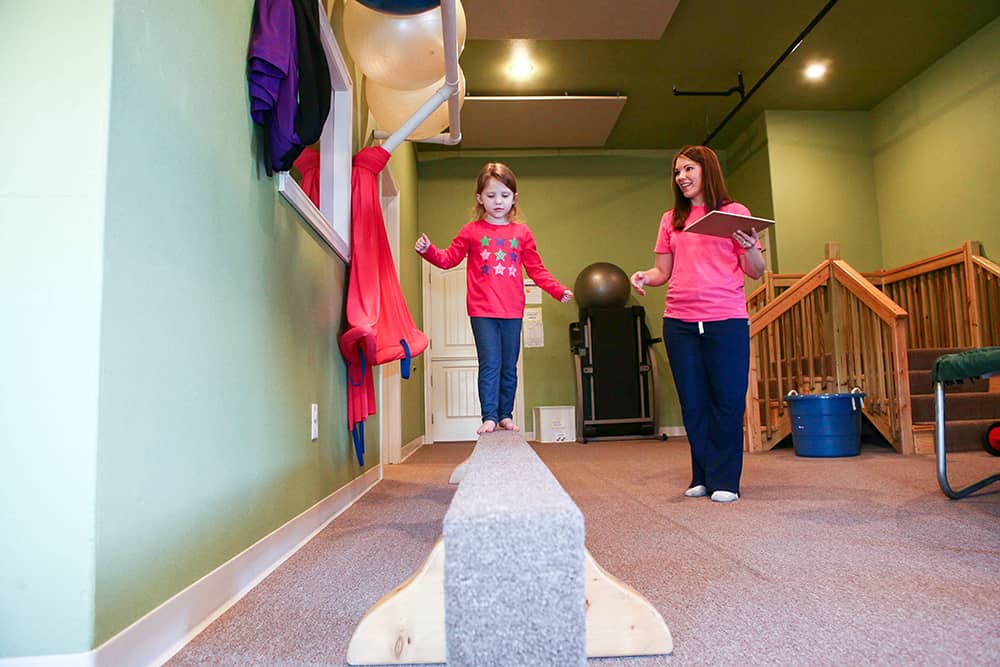
Physical Therapists address:
- Gross motor development
- Muscle tone and strength
- Posture/postural control
- Pre-gait and gait training
- Locomotion patterns
- Neuromuscular function
- Endurance
- Musculo-skeletal conditions
- Body alignment
- Environmental adaptations/seating and positioning
- Wheelchair positioning and mobility
- Splinting/bracing/orthotics
Speech Therapy
Impairments in these areas may be related to neurological deficiencies, such as Autism, Down’s Syndrome, and Cerebral Palsy. However, children with typical neurological development may also experience difficulty in these areas as well. Following an evaluation to assess each child’s strengths and areas of need, goals are formulated, and speech therapy is initiated to assist the child in reaching these goals.
While speech therapy is goal-oriented and centered on each child’s individual areas of strengths and needs, each session allows not only for structured therapy activities, but it also encourages the child to express his or her own preferences while selecting these activities.
The key to pediatric speech therapy, as with therapy in general, is to challenge the child while fostering a warm and welcoming environment. The child thus develops skills while having fun at the same time.
